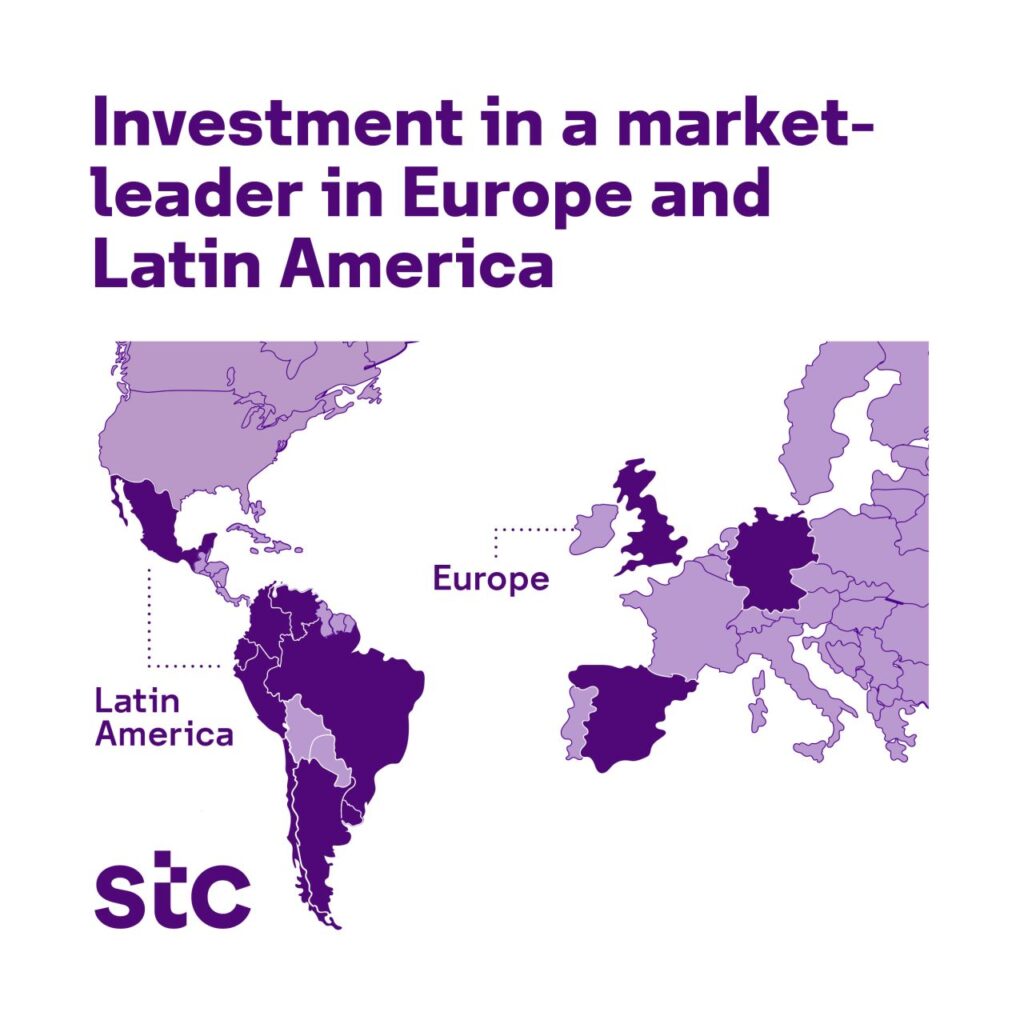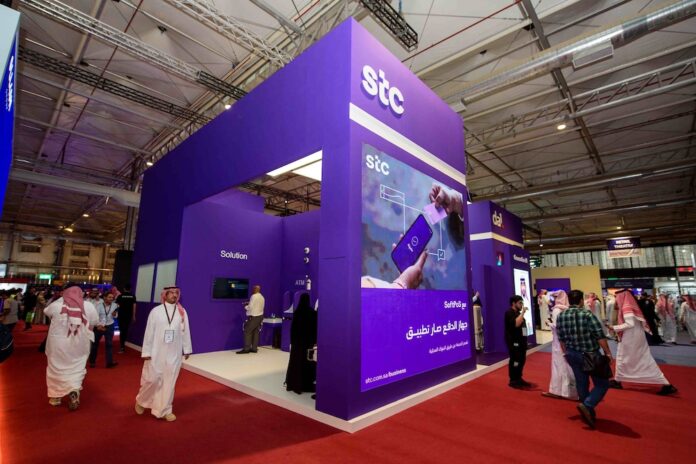Saudi telco is diversifying its business as the kingdom weans the economy off its dependence on oil
The Kingdom of Saudi Arabia’s stc Group signalled a new phase with its global investment strategy after acquiring a 9.9% stake in Telefónica for €2.1bn – making it the largest shareholder.
Telefónica confirmed stc built its stake through a direct acquisition of a 4.9% interest in the telco and the rest using financial instruments that provided an exposure over a further 5% of its share capital. stc plans to secure voting rights for that 5% interest held through financial instruments after receiving regulatory approvals
The Saudi government majority-owned telco [64%] is key to the Kingdom’s plans to diversify from oil as a primary revenue stream and has seen its Public Investment Fund (PIF) putting money into sport, tech and the automobile industry. The Saudi telco also owns subsidiaries and has stakes in companies operating in Kuwait and Bahrain.
Gulf telecom groups are ramping up investments abroad, with Emirates Telecommunications Group, known as e&, raising its stake in Vodafone Group to 14.61% in March while seeking to increase its holdings further.
Entering new markets
Even as the Telefónica was announced, stc was showcasing its position as a digital transformation engine for fintech, e-commerce, retail and payments industries – signing strategic agreements with Jahez Company, Alinma Bank and the Basalah e-commerce platform. In promoting the Telefónica deal stc notably highlighted the Spanish telco’s Latam portfolio as a major attraction for taking the stake.

Announcing the deal, stc’s chief executive Olayan Alwetaid was quick to highlight the company had no plans to acquire control of Telefónica. He noted the deal was a way to strengthen the company’s balance sheet while maintaining its dividend policy.
“Our investment in Telefónica demonstrates our confidence in Telefónica’s leadership, its strategy and its ability to create value. As long-term, supportive shareholders, we are committed to strengthening our partnership,” he said.
The bigger picture includes Latam
Instead, posting on social media, stc said the telco: “owns platforms in a number of markets, including Movistar, O2 and vivo, with operations in the ICT sector. It’s also developing state-of-the-art capabilities such as cognitive intelligence, edge computing and IoT.”
“Telefónica and stc Group share many similarities, with a vision to use technology to connect people and a strategy to drive growth,” said stc chairman Mohammed K. A. Al Faisal. “This long-term, significant investment by stc Group is a continuation of our growth strategy, as we invest in vital technology and digital infrastructure sectors across promising markets globally.”
As part of its growth and diversification strategy, its towerco subsidiary Tawal recently completed the acquisition of United Group’s telecommunications tower assets in Bulgaria, Croatia and Slovenia. The company has also recently engaged in several gaming deals through its subsidiary stc play.
Telefónica said it was informed of stc’s investment last Tuesday, describing it as “friendly”. stc built the position with the help of US investment bank Morgan Stanley, two sources familiar with the situation told Reuters. Linklaters acted as legal adviser to STC and Allen & Overy acted for Morgan Stanley, they added.
Telefónica is set to present a new strategic plan on 8 November with a focus on growing the company’s free cash flow, which its CEO has said could reach €4bn euros this year.
All eyes on the Spanish government
Spain’s government could still block STC’s stake purchase since Telefónica provides services to the country’s defence industry and the government can intervene in acquisitions of holdings above 5%.
According to Reuters, acting economy minister Nadia Calvino said Madrid was analysing the application of the relevant defence mechanisms, the sector, its relation with Spain’s security and defence of Spain, STC’s shareholding, the exercise of voting rights and the participation on the board or other decision-making bodies of the company.
“Telefónica is a strategic company for our country and as government we will apply all the mechanisms that are necessary to prioritise the defence of our strategic interests,” Calvino told reporters.
An official familiar with the government’s thinking said Madrid will “exercise its power” to approve or reject the operation as it understands it has oversight authority due to Telefónica’s links to national defence.



